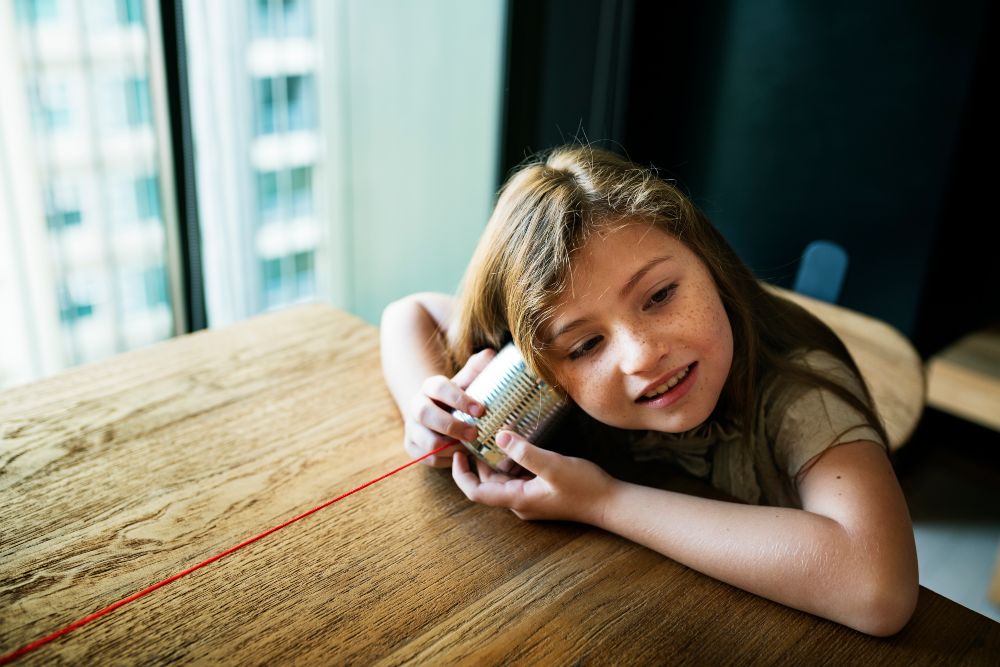
Interactive Toys & Games for Kids With Special Needs
Kids are all different in their characters, yet they all remain true to what defines them. The joy of being a child is unparalleled. They cry then laugh before tears dry from their eyes and with the proper love, care, and teaching, their development is happy and eventful. However, not all children require the same level of care and attention. There are children who for one reason or another, are unable to fit the societal standards of normal. These children with special needs, need more attention and care to achieve milestones that other children reach effortlessly. As parents, guardians, friends, family, or society, we love them all the same and would like to see children with disabilities living a healthy life. Therefore, there exist several interactive toys and games that are good for children with special needs.
Puzzles
The principle for all toys and games that will be of benefit to the children with special needs is their simplicity, safety, and capacity to teach. Puzzles are one of the best interactive games available on the planet. There are number puzzles, alphabet puzzles, animal sound puzzles, or musical sound puzzles, among others. The children get exposed to a myriad of things at a young age to help their brain develop. Variety also gives room for growth without necessarily breeding boredom. These games come in colorful sets that will help develop visual abilities. Sound puzzles prop the auditory system while others sharpen the fine motor skills of the children with special needs. Therefore, puzzles are one of the best choices whenever you are looking for adaptive games with attractive designs. They guarantee development in the brain function and help special needs children grow into productive, amicable members of society. Puzzles are also great options in terms of adaptive equipment that can be enjoyed in a family set-up to increase family relations and bonding time.
Lacing and Tracing Shapes
The little ones will spend the rest of their lives surviving on skills learned when young. The very basic skill sets that form the foundation of other complex skills is hand-eye coordination. For children with special needs to be able to relate and perform essential functions without aid, their motor system must be intact. The limbs are particularly crucial for daily activities, and guardians need to focus on exercises that will prime this coordination. Lacing cards are the children’s toys that appealingly deliver essential hand-eye coordination competence. The children are presented with a set of attractive, familiar shapes and colors in varying sizes to trace using colorful laces. These toys enhance creativity leading to increased awareness and learning. Their help guarantees a swift acceptance into society as contributors to growth. The splash of color and variation in patterns are also great in developing visual skills.
Model Trains
Trains are a great way to instill order and logic into the minds of children with special needs. The relationship between children with autism and trains are undeniable. Professionals relate the two to be as a result of the predictability in schedules or the uniformity in track patterns. However, the intricate truth is not well understood yet. Research by the National Autistic Society postulate that model trains were among the first entry points for communication with autistic children. Having autistic children visit museums with miniature train replicas of different ages would be a great way to learn and pass the time. Alternatively, you can purchase model trains as gifts or learning materials for autistic children. Many online outlets are offering model train replicas, DVDs with maps and images, of famous trails and trains. These children stand to learn a lot from a complete set of Rio Grande Narrow Gauge Remembrance or the New England Short-line and Regional Railroad’s atlas while having so much fun.
In conclusion, the development of children is the primary concern of guardians and parents. Children with special needs require a lot more effort to raise and integrate into society. A great tool to teach and train these kids in acceptable societal standards while making sure they are having fun is to use toys as teaching aids. Toys have proven to be ideal in creating a desire to learn while developing fundamental skills. Disability is not inability; therefore, children with special needs also deserve the chance to be appropriately mentored.


